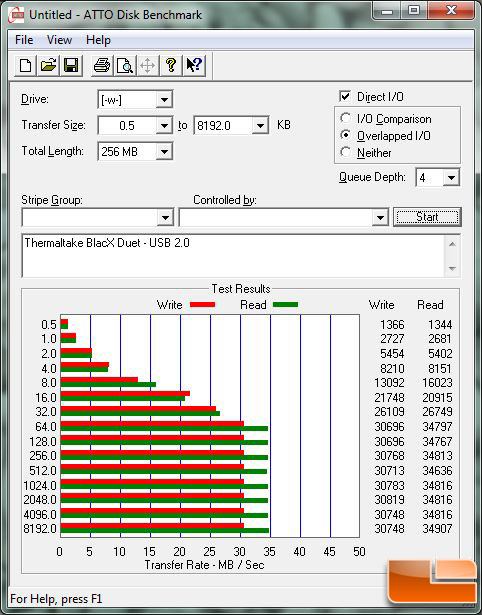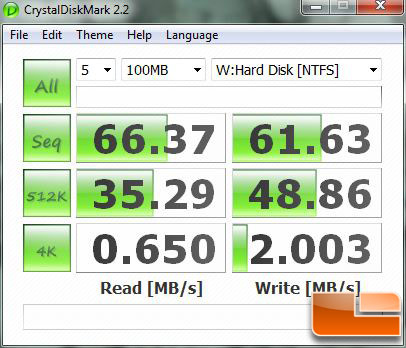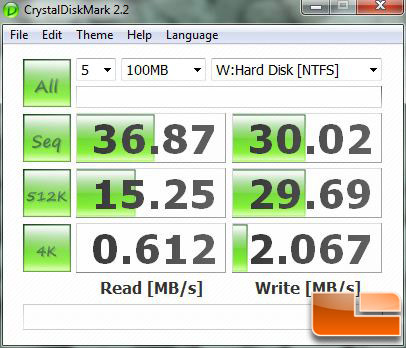Thermaltake BlacX Duet HDD Docking Station
ATTO & Crystal Mark Benchmarks
We ran several benchmarks on the BlacX Duet mainly to show the difference between USB 2.0 and eSATA speeds. The motherboard used was an Asus P6T Deluxe and the hard drive was a 250 GB Western Digital Caviar SE16 (WD2500KS) which maxes out at about 60MB/sec on both reads and writes.
ATTO is one of the oldest hard drive benchmarks that is still used today. ATTO measures transfers across a specific volume length. It measures raw transfer rates for both reads and writes and places the data into graphs that you can easily interpret. The test was run with the default runs of 0.5kb through 8192kb transfer sizes with the total length being 256mb.

Running the benchmark via eSATA, you can see that both read and writes hit or best 60MB/sec for most of the benchmark duration which is the limitation of the drive.

Unsurprisingly, using USB 2.0, writes were half of what the eSATA numbers were and reads were only marginally more than half. Given that the theoretical throughpout is 60MB/sec you wouldn’t expect USB to keep pace with the eSATA of 300GB/sec.
CrystalDiskMark is a small HDD benchmark utility for your hard drive that enables you to rapidly measure sequential and random read/write speeds.

Again, read and writes or eSATA are neck and neck at around 60GB/sec for sequential writes. This is a pattern we’ll continue to see.

Similar to the ATTO benchmark, USB 2.0 sequential reads and writes are nearly half of what we saw with eSATA at the disk’s maximum performance. Again, no surprises here as the USB 2.0 conduit is completely saturated and just can’t carry any more data.

Comments are closed.